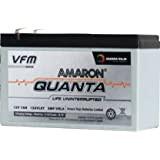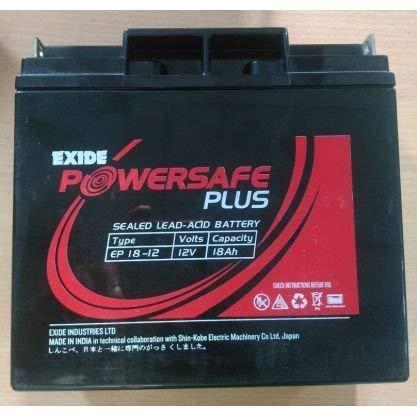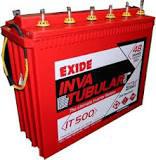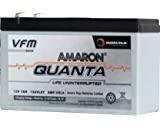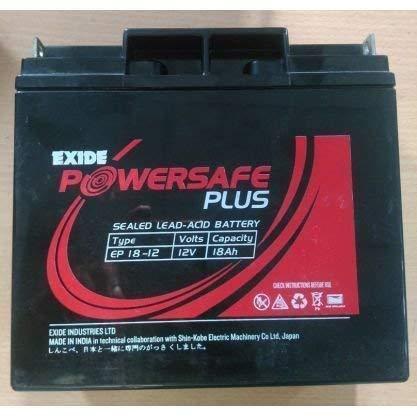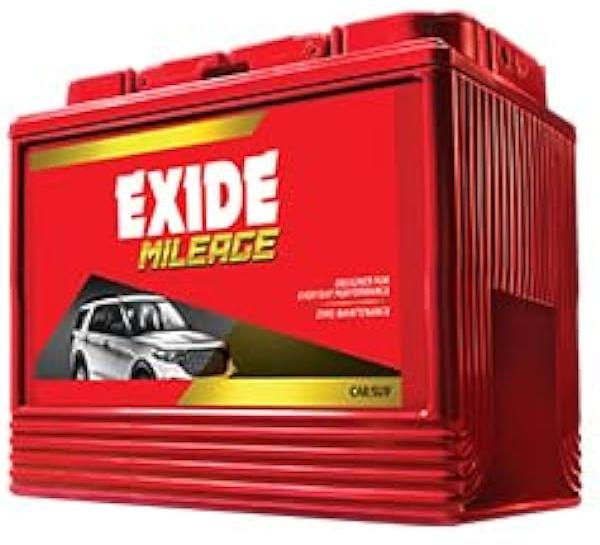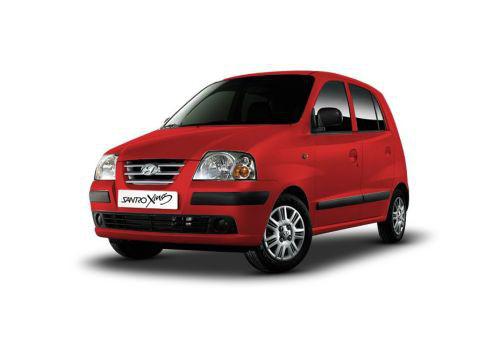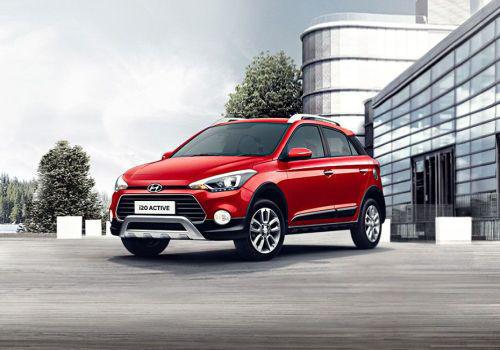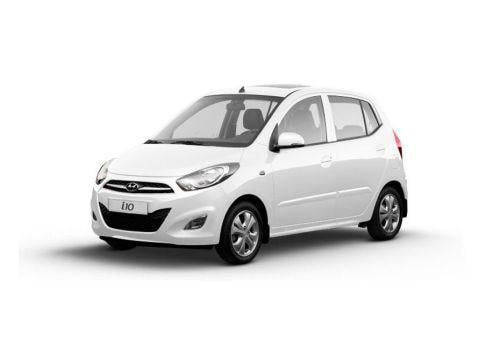Jaipur, Rajasthan
- GST NO. : 08ABDPM5660L1ZB
+91-9461156294
Battery
Leading Exporters, Wholesaler, Trader, Retailer of SMF Batteries, Solar Energy Batteries, Tubular Batteries and Automotive Batteries from Jaipur.
| Business Type | Exporter, Supplier, Trader |
| Color | Multiple Color Available |
| Application | Industrial Use |
| Size | Standard |
| Type | Smf Battery |
| Function | Electric |
| Warranty | 2 years |
| Sealed Type | Sealed |
| Backup Time | 25 minutes |
Preferred Buyer From
| Location | India ( Rajasthan only) & All other countries |
Tubular & SMF BATTERIES
Tubular batteries and Sealed Maintenance Free (SMF) batteries represent two distinctive yet essential facets of lead-acid battery technology. SMF batteries, also known as Value Regulated Lead Acid (VRLA) batteries, excel in their maintenance-free nature, versatility in orientation, and freedom from emissions, making them suitable for a wide array of applications such as automobiles, UPS systems, and emergency lighting. On the other hand, tubular batteries, characterized by their larger size and increased positive plate surface area, offer 20% more electrical capacity, making them ideal for regions with longer but less frequent power cuts.
The tubular design, with its submerged positive and negative plates, ensures reliable electricity generation, coupled with minimal maintenance requirements. While SMF batteries are favored for their convenience and versatility, tubular batteries stand out for their enhanced capacity and reliability, catering to specific power storage needs in diverse settings. Both technologies play pivotal roles in meeting distinct energy storage demands across various industries and applications.
Beyond their unique attributes, both tubular and SMF batteries are integral components in diverse sectors. SMF batteries, with their sealed design, find favor in applications where emissions and gases could pose challenges, such as in enclosed spaces, automobiles, and emergency lighting. Their economic feasibility and the ability to be installed before transport make them a practical choice for various industries. Tubular batteries, with their larger size and increased electrolyte capacity, excel in areas with less frequent but prolonged power cuts. Their reliability, longer warranty periods, and enhanced electrical properties, especially in tall tubular variants, make them essential for applications demanding sustained power backup. Industries ranging from telecommunications and data centers to transportation and renewable energy rely on the strengths of both tubular and SMF batteries, highlighting their indispensable roles in ensuring uninterrupted power supply and efficient energy storage.
BATTERY SAFETY AND HANDLING GUIDELINES
FOLLOW THESE BEST PRACTICES TO AVOID BATTERY ACCIDENTS
Please refer to your vehicle and battery owners’ manual to safely handle your lead-acid battery. Lead-acid batteries contain hydrogen-oxygen gases that can be explosive. Also, leakage of sulfuric acid can cause severe burns. Here are some precautions:
- Wear safety glasses or goggles and a face shield
- Make sure the work area is well-ventilated
- Keep the battery out of children’s reach
- Keep vent caps tight and level
- In the event of an accident, flush with water and call a physician immediately
- Never lean over the battery while boosting, testing or charging it
- Keep all ignition sources like cigarettes, flames, and sparks that could cause the battery to explode away from it
- Do not charge, use booster cables or adjust post connections without proper instructions and training
- Avoid metallic contact across the terminals as this can result in short circuit and sparking (remove comma)
Safe disposal of old batteries
Govt. of India has notified Batteries Management Handling Rules, 2001 under the Environment Protection (Amendment) Act 1986 to channelize used lead acid batteries to registered/ authorized recyclers and ensure an environmentally safe & sound recycling.
The used batteries are carefully transported to respective manufacturers for the safe lead-recycle process, with no danger of air/water pollution. We are strongly committed to a safe and pollution-free environment.
| Business Type | Exporter, Supplier, Trader |
| Brand Name | Exide |
| Condition | New |
| Application | Solar Battery |
| Feature | Stable Performance, Long Life |
| Type | Solar Energy Batteries |
| Function | Solar |
| Country of Origin | India |
Preferred Buyer From
| Location | India ( Rajasthan only) & All other countries |
Solar Batteries
Solar batteries, also known as solar energy storage systems or solar storage batteries, play a vital role in harnessing and maximizing the benefits of solar power. These batteries are crucial components of solar photovoltaic (PV) systems, which generate electricity from sunlight. These batteries store excess
electricity generated by solar panels during periods of sunlight, allowing users to utilize that stored energy when sunlight is not available, such as during nighttime or cloudy days. This capability enables a more consistent and reliable power supply from solar installations.
In contrast to automotive and industrial batteries, solar batteries serve a distinct purpose in energy storage. While automotive batteries are designed for short bursts of high power to start engines, and industrial batteries focus on providing consistent power for various heavy-duty applications, solar batteries prioritize efficient storage and retrieval of energy generated by solar panels. They are tailored for cyclic use, experiencing daily charge and discharge cycles. Solar batteries emphasize long-term reliability and sustainability, characteristics that differentiate them from the specific and often more demanding requirements of automotive and industrial batteries.
Types of Solar Batteries:
-
Lead-Acid Batteries: Traditional and cost-effective, lead-acid batteries are commonly used for solar energy storage. However, they may have shorter lifespans and require regular maintenance.
-
Lithium-Ion Batteries: Growing in popularity due to their high energy density, longer lifespan, and lower maintenance requirements. Lithium-ion batteries, including variations like lithium iron phosphate (LiFePO4), are commonly used in residential and commercial solar storage systems.
-
Flow Batteries: An emerging technology, flow batteries store energy in liquid electrolytes, offering advantages like scalability and longer cycle life. However, they are currently less common and more expensive.
Key Considerations:
-
Capacity: The storage capacity of a solar battery determines how much energy it can store. The right capacity depends on the user's energy needs and the intended duration of backup power.
-
Depth of Discharge (DoD): This indicates the percentage of a battery's capacity that can be used before recharging. A higher DoD allows for more usable energy but can impact the battery's lifespan.
-
Round-Trip Efficiency: This metric reflects how efficiently a solar battery can convert stored energy back into electricity. Higher efficiency ensures less energy loss during the charging and discharging processes.
-
Lifecycle: The number of charge and discharge cycles a solar battery can undergo before its capacity significantly degrades. Lithium-ion batteries often have longer lifecycles compared to lead-acid batteries.
Applications:
-
Residential Solar Systems: Solar batteries are used in conjunction with residential solar panels to store excess energy for nighttime or cloudy days, providing homeowners with a reliable and continuous power supply.
-
Commercial and Industrial Solar Installations: Large-scale solar installations for businesses and industries often incorporate solar batteries to enhance energy self-sufficiency and reduce reliance on the grid during peak demand periods.
-
Remote Off-Grid Systems: Solar batteries are essential in off-grid applications where there is no access to the electrical grid. This includes remote homes, cabins, and telecommunications towers.
BATTERY SAFETY AND HANDLING GUIDELINES
FOLLOW THESE BEST PRACTICES TO AVOID BATTERY ACCIDENTS
Please refer to your vehicle and battery owners’ manual to safely handle your lead-acid battery. Lead-acid batteries contain hydrogen-oxygen gases that can be explosive. Also, leakage of sulfuric acid can cause severe burns. Here are some precautions:
-
Wear safety glasses or goggles and a face shield
-
Make sure the work area is well-ventilated
-
Keep the battery out of children’s reach
-
Keep vent caps tight and level
-
In the event of an accident, flush with water and call a physician immediately
-
Never lean over the battery while boosting, testing or charging it
-
Keep all ignition sources like cigarettes, flames, and sparks that could cause the battery to explode away from it
-
Do not charge, use booster cables or adjust post connections without proper instructions and training
-
Avoid metallic contact across the terminals as this can result in short circuit and sparking (remove comma)
Safe disposal of old batteries
Govt. of India has notified Batteries Management Handling Rules, 2001 under the Environment Protection (Amendment) Act 1986 to channelize used lead acid batteries to registered/ authorized recyclers and ensure an environmentally safe & sound recycling.
The used batteries are carefully transported to respective manufacturers for the safe lead-recycle process, with no danger of air/water pollution. We are strongly committed to a safe and pollution-free environment.
| Business Type | Exporter, Supplier, Trader |
| Application | Industrial Use, Home Use |
| Feature | Stable Performance, Fast Chargeable |
| Weight | 30-40kg |
| Function | Electric |
| Warranty | 24 Months |
| Material | Zinc and Lead |
| Advantage | Easy to Operate |
Preferred Buyer From
| Location | India ( Rajasthan only) & All other countries |
Tubular & SMF BATTERIES
Tubular batteries and Sealed Maintenance Free (SMF) batteries represent two distinctive yet essential facets of lead-acid battery technology. SMF batteries, also known as Value Regulated Lead Acid (VRLA) batteries, excel in their maintenance-free nature, versatility in orientation, and freedom from emissions, making them suitable for a wide array of applications such as automobiles, UPS systems, and emergency lighting. On the other hand, tubular batteries, characterized by their larger size and increased positive plate surface area, offer 20% more electrical capacity, making them ideal for regions with longer but less frequent power cuts.
The tubular design, with its submerged positive and negative plates, ensures reliable electricity generation, coupled with minimal maintenance requirements. While SMF batteries are favored for their convenience and versatility, tubular batteries stand out for their enhanced capacity and reliability, catering to specific power storage needs in diverse settings. Both technologies play pivotal roles in meeting distinct energy storage demands across various industries and applications.
Beyond their unique attributes, both tubular and SMF batteries are integral components in diverse sectors. SMF batteries, with their sealed design, find favor in applications where emissions and gases could pose challenges, such as in enclosed spaces, automobiles, and emergency lighting. Their economic feasibility and the ability to be installed before transport make them a practical choice for various industries. Tubular batteries, with their larger size and increased electrolyte capacity, excel in areas with less frequent but prolonged power cuts. Their reliability, longer warranty periods, and enhanced electrical properties, especially in tall tubular variants, make them essential for applications demanding sustained power backup. Industries ranging from telecommunications and data centers to transportation and renewable energy rely on the strengths of both tubular and SMF batteries, highlighting their indispensable roles in ensuring uninterrupted power supply and efficient energy storage.
FOLLOW THESE BEST PRACTICES TO AVOID BATTERY ACCIDENTS
Please refer to your vehicle and battery owners’ manual to safely handle your lead-acid battery. Lead-acid batteries contain hydrogen-oxygen gases that can be explosive. Also, leakage of sulfuric acid can cause severe burns. Here are some precautions:
- Wear safety glasses or goggles and a face shield
- Make sure the work area is well-ventilated
- Keep the battery out of children’s reach
- Keep vent caps tight and level
- In the event of an accident, flush with water and call a physician immediately
- Never lean over the battery while boosting, testing or charging it
- Keep all ignition sources like cigarettes, flames, and sparks that could cause the battery to explode away from it
- Do not charge, use booster cables or adjust post connections without proper instructions and training
- Avoid metallic contact across the terminals as this can result in short circuit and sparking (remove comma)
Safe disposal of old batteries
Govt. of India has notified Batteries Management Handling Rules, 2001 under the Environment Protection (Amendment) Act 1986 to channelize used lead acid batteries to registered/ authorized recyclers and ensure an environmentally safe & sound recycling.
The used batteries are carefully transported to respective manufacturers for the safe lead-recycle process, with no danger of air/water pollution. We are strongly committed to a safe and pollution-free environment.
| Business Type | Exporter, Supplier, Trader |
| Brand Name | Exide |
| Driven Type | Electric |
| Certification | CE Certfied |
| Feature | Stable Performance, Auto Cut |
| Warranty | 2yrs |
| Battery Material | Lead Acid |
| Frequency | 45- 55 Hz |
Preferred Buyer From
| Location | India ( Rajasthan only) & All other countries |
Automotive batteries are essential components in various vehicles, each designed to meet specific power requirements and operational needs. In the automotive realm, batteries serve diverse applications:
In the case of cars, batteries play a pivotal role in supplying power for engine ignition and various electronic components. Typically lead-acid, these batteries vary in size to accommodate different car models. Some modern cars may use advanced technologies like Absorbent Glass Mat (AGM) or Enhanced Flooded Batteries (EFB) for enhanced performance.
Buses and trucks demand heavier-duty batteries due to larger engines and additional electrical loads. These heavy-duty batteries ensure reliable starting and power supply for the various systems in commercial vehicles.
Motorcycle batteries, smaller and lighter, must still deliver sufficient power for engine starting and running lights and accessories. Typically lead-acid, some motorcycles may employ lithium-ion batteries for a more compact and lighter design.
Electric rickshaws (E-Rickshaws) are part of the growing trend towards electric transportation. Powered by electric batteries, these vehicles commonly use lead-acid or lithium-ion batteries, providing a clean and efficient mode of urban commuting.
Key Considerations for Automotive Batteries:
-
Voltage and Capacity: Different vehicles require batteries with specific voltage and capacity ratings to meet their power needs.
-
Maintenance: While traditional lead-acid batteries may require periodic maintenance, newer technologies like AGM and lithium-ion offer maintenance-free options.
-
Durability: Automotive batteries need to withstand vibrations, temperature fluctuations, and other harsh conditions associated with vehicle operation.
-
Technology: Advancements in battery technology, such as AGM and lithium-ion, provide improved performance, longer life, and faster charging capabilities.
-
Environmental Impact: With increasing awareness of environmental concerns, there is a growing interest in electric vehicles powered by batteries with reduced environmental impact.
-
Choosing the right automotive battery involves considering the vehicle type, power requirements, and specific environmental conditions to ensure reliable and efficient performance.
FOLLOW THESE BEST PRACTICES TO AVOID BATTERY ACCIDENTS
Please refer to your vehicle and battery owners’ manual to safely handle your lead-acid battery. Lead-acid batteries contain hydrogen-oxygen gases that can be explosive. Also, leakage of sulfuric acid can cause severe burns. Here are some precautions:
- Wear safety glasses or goggles and a face shield
- Make sure the work area is well-ventilated
- Keep the battery out of children’s reach
- Keep vent caps tight and level
- In the event of an accident, flush with water and call a physician immediately
- Never lean over the battery while boosting, testing or charging it
- Keep all ignition sources like cigarettes, flames, and sparks that could cause the battery to explode away from it
- Do not charge, use booster cables or adjust post connections without proper instructions and training
- Avoid metallic contact across the terminals as this can result in short circuit and sparking (remove comma)
Safe disposal of old batteries
Govt. of India has notified Batteries Management Handling Rules, 2001 under the Environment Protection (Amendment) Act 1986 to channelize used lead acid batteries to registered/ authorized recyclers and ensure an environmentally safe & sound recycling.
The used batteries are carefully transported to respective manufacturers for the safe lead-recycle process, with no danger of air/water pollution. We are strongly committed to a safe and pollution-free environment.

